Danny Dyer returns to our screens in the new Sky comedy series Mr. Bigstuff, playing mischievous troublemaker Lee Campbell. Lee suddenly reemerges in the life of his straight-laced brother Glen, played by creator Ryan Sampson, dropping his trademark chaos into the quiet suburban routine Glen has settled into.
Living with fiancée Kirsty and working at the local carpet shop, Glen’s world is turned upside down by the arrival of his long-estranged sibling. Lee seems to live by his own unpredictable code, gallivanting around in outlandish outfits one moment and picking fights with strangers the next. His motivations for seeking out Glen are initially unclear.
Across six half-hour episodes, the show follows the odd couple brothers as their personalities clash and lives collide in comedic fashion. Dyer leans into his rule-breaking reputation to play Lee as an unapologetic livewire, a stark contrast to Glen’s predictable nine-to-five existence. The chemistry between the leading men will keep viewers entertained as hidden truths about the brothers’ past are revealed.
With this review, I aim to provide an overview of the new series and assess if it lives up to the promise of its charismatic leading man. From chaotic antics to family drama, let’s see if Mr. Bigstuff hits the mark or falls short of the finish line.
Plot Progression and Pacing
The plot of Mr. Bigstuff spans six 30-minute episodes, introducing brother Lee Campbell as he arrives to upend Glen’s peaceful suburban life. Over the course of their time together, the distinctive personalities of these siblings come to the fore through their interactions and the hijinks that ensue.
In the early episodes, Lee’s sudden appearance raises many questions about his motivations and history with his brother. We pick up bits of their backstory as flashbacks, learning that some past quarrel caused a rift between them. Motivated by an elusive mission to track down their mutual friend Steve, Lee inserts himself firmly into Glen’s world with bombastic charm.
He presents an incongruous figure in Glen’s stable routine, swanning about in flamboyant robes or causing conflicts that his brother must diffuse. Through it all, their verbal sparring and grudging bond emerging is an engaging will-they-won’t-they dynamic. Fans of Dyer will delight in his larger-than-life portrayal of this unpredictable wildcard of a character.
The plot moves at an enjoyable clip through the opening episodes as Lee’s antics both disrupt and liberate Glen’s staid existence. A highlight is their comedic brawl on the riverbank. Character details are drip-fed to maintain mystery around Lee’s true purpose. The supporting cast is amusing too, from Glen’s frustrated fiancee to their pompous carpet boss.
However, as the midpoint arrives, the storyline loses some momentum. A few episodes feature subplots that feel loosely connected to the core brotherly conflict. The attention shifts temporarily elsewhere, such as Kirsty’s personal issues, thinning the plot unnecessarily.
Thankfully, momentum builds again in the climactic episodes as some long-teased revelations emerge. We learn disturbing secrets about their pasts and Steve’s shady dealings. The brothers reach a turning point in their bond during an explosive confrontation that ties up loose plot threads.
Overall, the plotting keeps things entertaining through lively characters and a bubbling mystique around Lee. But tighter editing could have strengthened pacing in the middle section by staying focused on the core narrative arc. Nonetheless, fans of Danny Dyer are offered an enjoyably chaotic ride across the six episodes.
Meet the Campbell Clan
Glen Campbell is the straight man of the show, bringing stability to the chaotic clan. As a carpet salesman just months from marrying Kirsty, steady Glen’s mild manners brighten whenever brother Lee disrupts his routine. Played with earnest nuance by Ryan Sampson, Glen’s journey sees him rediscover his backbone.
Then there’s Lee, crashing into Glen’s world with tornado-like dynamism. Danny Dyer sinks his teeth into the role, serving up a tour-de-force performance. Lee’s all flamboyant bravado outside yet clearly wrestling private pain. His escapades alternately mortify and liberate Glen, deepening their bond. Fans will love Dyer’s knack for imbuing bluster with heart.
Often overshadowed by the brothers, Kirsty proves a standout nonetheless. As Glen’s ambitious fiancée conceals secrets, Harriet Webb ensures her character’s plight entertains as much as it elicits sympathy. Underneath the cheeriness, doubts simmer; glimpses of her turmoil make Kirsty’s struggle with identity complexly human.
Secondary players round out the raucous clan. Glen’s pompous boss Ian finds an unlikely ally in Lee; their polar energies are comedic gold. And Geoff Bell left a searing impression as shady contact Steve, his devious air lending grit.
Together, these flawed yet colorful figures sketch a compelling family portrait. Their bond’s transformed from fractured to fulfilling, winning over fans with each character’s journey toward self-acceptance within the community. In a style so candidly performative, they spring to vibrant life—testimony to the actors’ gift for mining authentic emotion from larger-than-life roles.
Mastering the Comedy
Mr. Bigstuff aimed high with its comedic ambitions, yet pulling them off proved tricky. Danny Dyer lent his trademark bravado as troublemaker Lee, ensuring constant drama and raising chuckles with his outlandish antics. From kidnapping Glen’s boss to scolding litterbugs, Lee breathed unpredictability into the show.
Still, balancing this unruliness with genuine humor wasn’t always smooth. While Dyer’s charisma saved some questionable bits, other approaches felt strained. The brothers’ overblown fights landed more with an eye-roll than a belly laugh. And attempts at poignancy sometimes came across as preachy.
Where the comedy shone was in relatable absurdity. Scenes stuck in one’s mind, like Kirsty’s fumbling excuses to a suspicious coworker. And the dissonance between Lee’s flamboyant style and the Glaswegian backdrop conjured smiles.
Yet the inconsistent tone proved problematic. Whiplashing between zany capers and melodrama, it struggled to find just the right pitch. And narratives grew muddled, juggling multiple moving parts.
Still, glimmers of promise emerged. Sampson displays comic timing and an ear for natural dialogue. With polishing, his observational humor could truly sing. And the cast injected heart into even farcical moments.
Overall, while failing to fully gel its ambitious vision, Mr. Bigstuff showed comedic knack. With experience, these talents may cohere into memorable laughs. For now, it provides a solid foundation to build future works into true sitcom hits. With refining humor and tightening narrative, the next outing could put comedy crowns fully in their sights.
Leading from the front
At the helm of Mr. Bigstuff stood writer-creator Ryan Sampson. Crafting his debut as both author and lead actor posed challenges, and the results were mixed.
The writing yielded flashes of potential. Dialog shone in casual exchanges between siblings or when mining humor from mundane jobs. Yet narratives wandered without clear purpose. Subplots like Kirsty’s troubles felt underdeveloped alongside louder storylines.
Directing-wise, pacing issues arose from such scattershot content. Yet amidst the chaos, hearts shone through. Scenes inside the family home felt warm, with performances carrying emotional weight.
Chiefly carrying out the whole affair was Danny Dyer. His mastery elevates even mediocre material. Breathing life into big brother Lee, Dyer took on a paper-thin character and imbued it with complexity. Swagger and bluster masked inner cares, nuances subtly played.
Complementing Dyer, Costars left impressions. Ryan Sampson brought quiet humanity to timid Glen, forming an entertaining odd couple. And newcomer Harriet Webb stood out, mining both comedy and pathos from Kirsty’s plight.
But Dyer remained the gravitational center, his magnetism masking other elements and sometimes lacking polish. Production values felt modest at times, with rushed edits distracting.
Overall, deficits arose understandably from inexperience. But Mr. Bigstuff suggests a promise of refining focus. Sampson showed flair but should consider collaborating to realize higher ambitions. And Sky no doubt recognizes gold in maintaining Dyer’s involvement.
Together, they form a team with potential. With experience delivering quality across all aspects, future works could emerge as true hits. For now, glimpses of brilliance emerge from an otherwise uneven debut. With tuning, this creative trio may yet strike big.
Brothers Bonded and Bound
At its heart, Mr. Bigstuff explores the bond between siblings and complex notions of masculinity. Through brothers Glen and Lee, themes emerge of family connection and gender expectations.
Glen represents traditional masculine assumptions—withdrawn, duty-bound, yet longing for adventure. By contrast, Lee embraces experimentation. Flouting norms in dress yet defending others, his character questions preconceived roles.
Their dynamic shows that fractured families can reunite. Despite years of estrangement, familiar affection remains. Lee pulls Glen from stagnation, reigniting his dormant spirit. In turn, stability curbs Lee’s wildness. Together, both brothers transcend limitations.
Subtly, their tale tackles toxic actions masquerading as masculinity. Lee’s pugnacious front hides pain from his father’s absence. Only through vulnerability with Glen can true healing start. Similarly, Glen finds fortitude wasn’t a weakness after all.
Not all is conveyed seamlessly. Lee remains an enigma, his motivations unclear. And themes risk simplifying complex issues. But glimpses offer food for thought. Familial bonds can overcome hurts from the past. Accepting others and ourselves means discovering people in all their fullness.
Overall, Brothers Bonded and Bound hints at masculine nuance beyond surface images. And it suggests families, like these estranged siblings, possess innate strengths to uplift one another—if only we let ourselves be reunited.
Calling Mr. Bigstuff
On the whole, Mr. Bigstuff delivers mixed results. Danny Dyer lights up the screen as Lee, keeping viewers entertained with his fiery antics. Yet around him, the series sometimes struggles to find its rhythm.
The best moments tap into interpersonal dynamics. When brothers Lee and Glen playfully bicker, their bond feels authentic. Kirsty also emerges as a standout, her troubles hinting at unsaid stories. These human touches show promise.
However, too often, the plot meanders without clear direction. Motivations remain muddy, while subplots feel half-baked. The focus pulls in many directions without settling anywhere deeply satisfying.
There’s room to grow here, but there are also seeds for something special. With the polishing of scripts and character depth, future seasons could really live up to the name “Bigstuff.” The cast possesses talent that just needs sharper material to shine.
For now, the verdict is a tentative “could do better.” While Dyer lends mana, its irregular quality makes this an inconsistent watch. Some parts call you back, while others beg to be skipped. As a whole package, it’s not the most rewatchable comedy.
With refinement, though, the foundations are there. With Lee Campbell leading the way, this crew could really go places. Perhaps next time, Mr. Bigstuff will deliver on his full potential. For fans of the actor, this first outing at least deserves a look. But it leaves you wanting the show to step up to his caliber. With tweaks, a sequel could truly be something to shout about.
The Review
Mr Bigstuff
In summary, while Mr. Bigstuff shows flashes of potential, it ultimately fails to live up to the charisma of its star. Danny Dyer shines as usual, but around him, the series struggles at times to establish a clear comedic rhythm or develop its characters fully. There's room here for growth into something memorable, but in its first season, the uneven quality and lack of narrative focus hold it back.
PROS
- Danny Dyer's charismatic lead performance
- Potential in the core sibling relationship dynamic
- Glimpses of humor and heart among family and friends
CONS
- Uneven tone and quality between episodes
- Murky character motivations and development
- Lack of focus and direction in the overarching plot
- Subplots feel underbaked or unresolved









































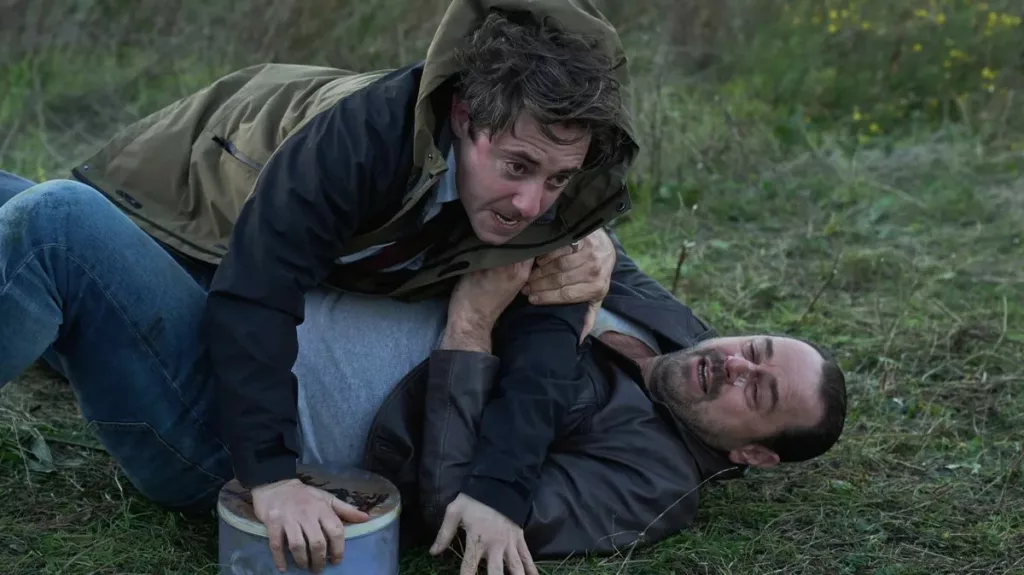
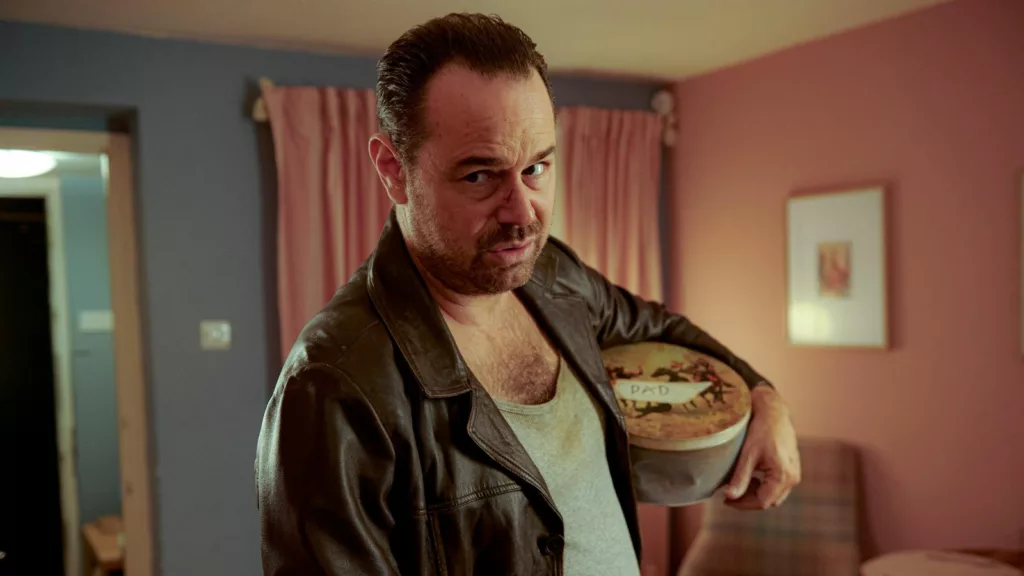
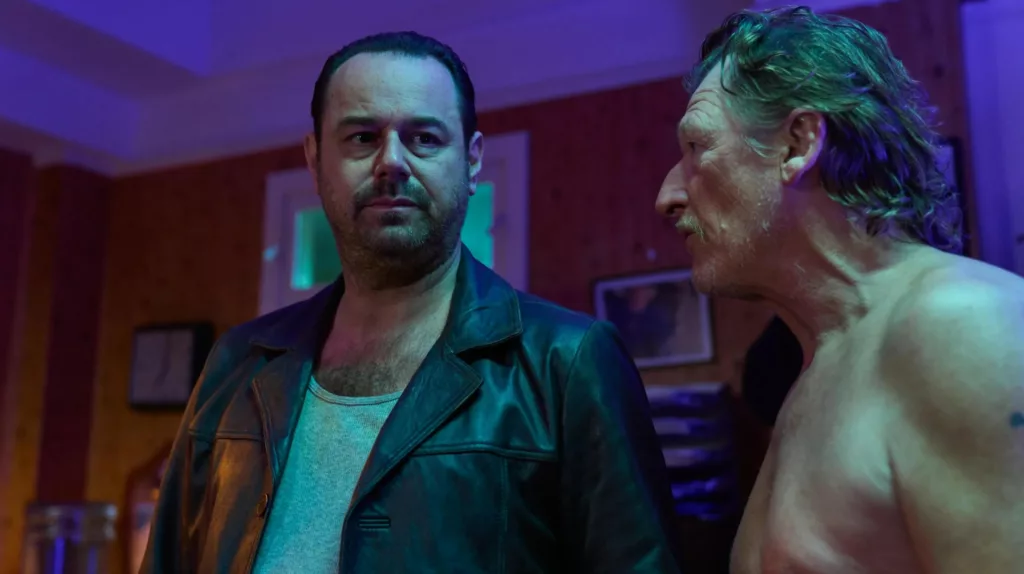
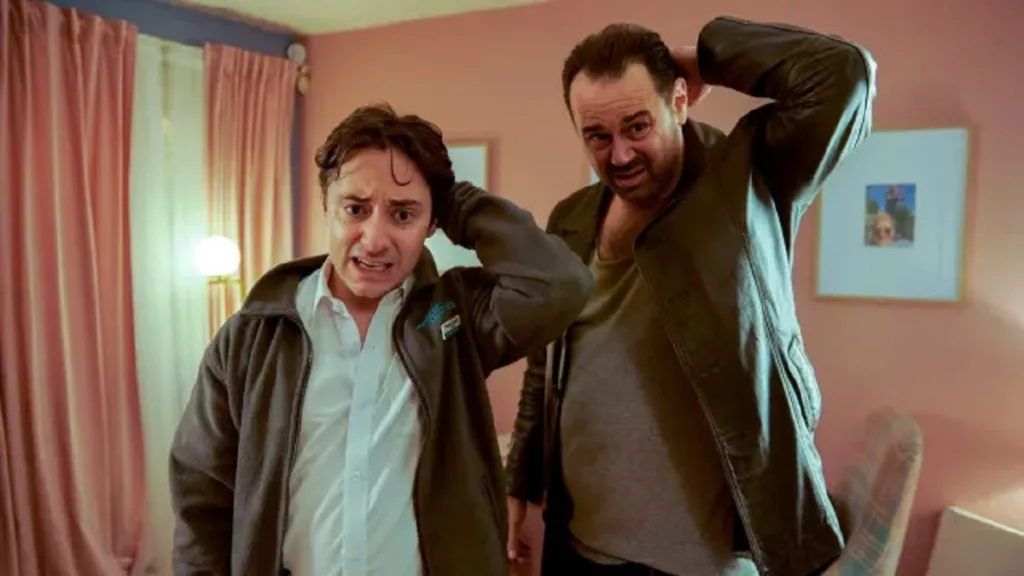
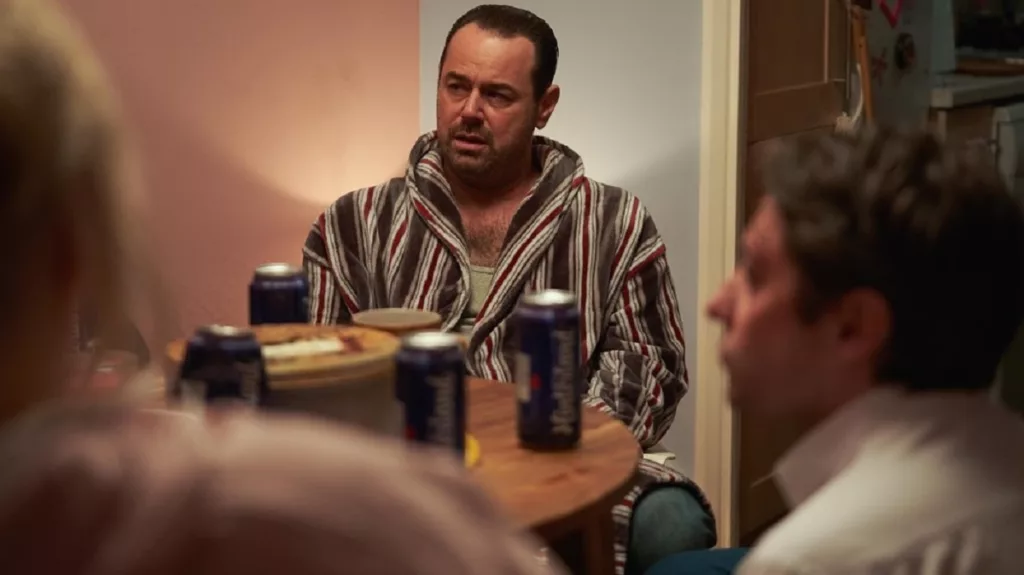








Discussion about this post